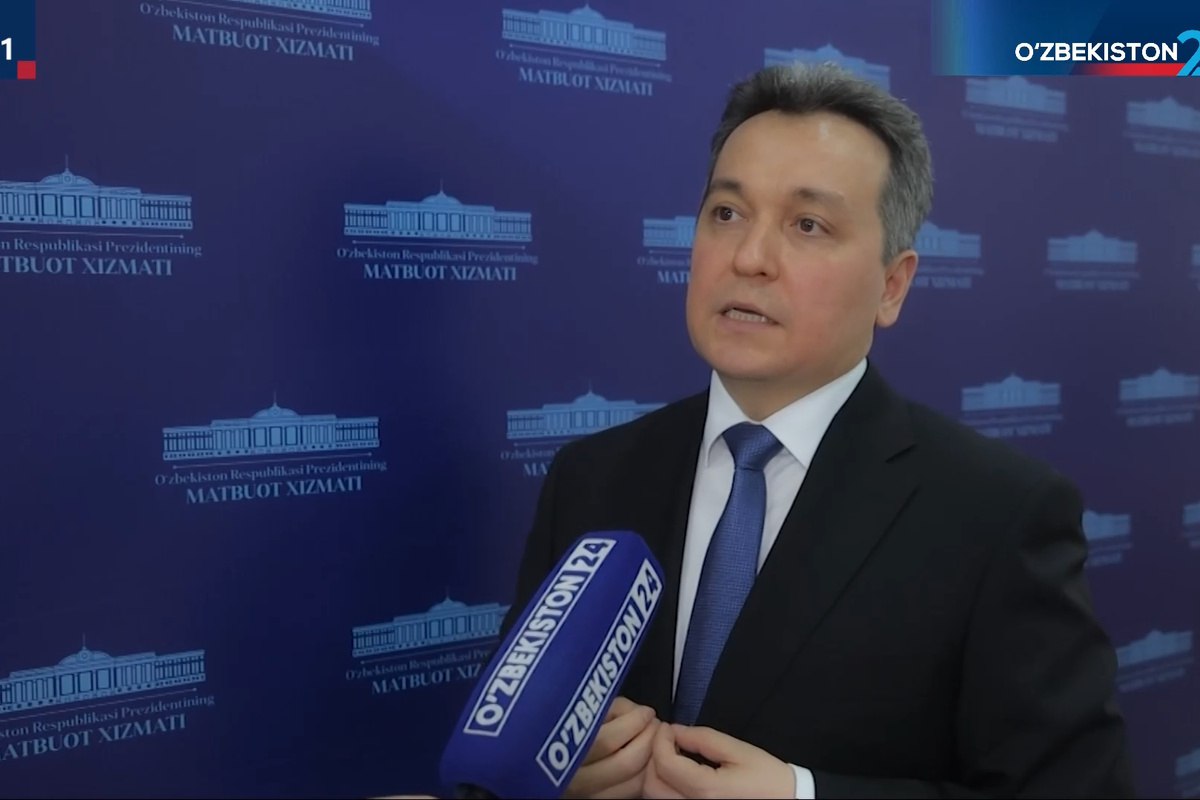Uzbekistan to enable paid government services via banking and payment apps
Uzbekistan is set to expand digital access to public services by integrating paid government services into banking and payment applications, according to Sherzod Shermatov, Minister of Digital Technologies.

Sherzod Shermatov Photo: Oʻzbekiston 24
This move comes amid rapid growth in the country’s IT sector. As Shermatov explained in an interview with Uzbekistan 24, more than 30 foreign-backed IT companies open offices in Uzbekistan every month, tripling the number compared to 2017. Consequently, IT service exports are surging.
“We originally planned to reach $1 billion in IT service exports by 2028. Thanks to strong support and faster-than-expected growth, we now anticipate surpassing that mark already this year,” Shermatov said.
Expansion of digital public services
All electronic public services are being consolidated on the Unified Portal of Interactive Public Services, with a target of making at least 70% of all services accessible through a single digital platform.
President Shavkat Mirziyoyev has now tasked the government with allowing access to these services through third-party mobile applications, including those of banks and payment providers. A pilot initiative allowing access to free public services through private apps has already been launched.
“Today the president instructed us to enable these platforms to also provide paid government services. Since users are already familiar with their interfaces, it’s a way to improve convenience,” Shermatov noted.
Institutional reforms needed
However, Shermatov emphasized that this shift requires deep institutional changes, including new IT systems within government bodies. The Cabinet of Ministers has been instructed to finalize a presidential decree that would accelerate digitalization projects and streamline access to public services via UPIPS.
In November 2024, First Deputy Minister Oleg Pekos announced that the Ministry had abandoned plans to develop a standalone government “super app” and instead chose to integrate services into existing popular platforms.
Currently, 10–12 government services are accessible via third-party apps, with that number expected to grow. Pekos emphasized the need for caution when partnering with the private sector and banking platforms, particularly for services involving sensitive data.
“Free services have already been integrated. We are now actively working on paid services in cooperation with all payment systems, tools, and apps. This includes all banks and telecom operators,” Pekos stated.
However, services requiring in-person presence – such as ID issuance, which involves fingerprint scanning – will remain unavailable through apps. For instance, users will be able to pay for vehicle window tinting through apps, but not apply for ID cards.
Related News

17:39 / 22.07.2025
Uzbekistan to integrate AI into healthcare, courts, and public services

14:09 / 16.07.2025
Uzbekistan losing up to $4.5 billion annually due to data localization law — Analysis

12:59 / 15.07.2025
Government moves to digitize vehicle retrieval process from impound lots

13:14 / 02.07.2025



